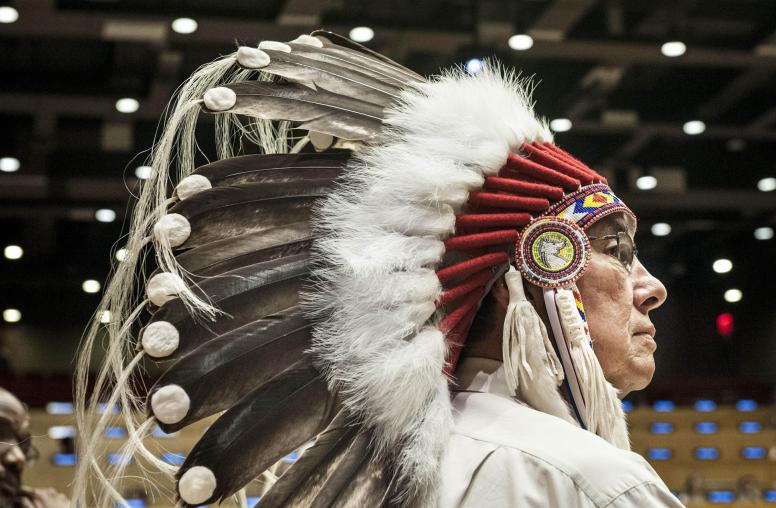Disability-Inclusive Peacebuilding: State of the Field and the Way Forward
Despite being an estimated 15 percent of the world’s population, people with disabilities are not routinely included in peacebuilding, which would benefit from their expertise and perspectives. Although efforts to include marginalized populations can help, the current deficits are too great to be remedied through general approaches. This report covers the state of the field, identifies gaps and opportunities, and makes recommendations for the inclusion and meaningful participation of people with disabilities in peacebuilding.
Summary
- Legal and policy frameworks developed over the past fifteen years have advanced disability rights worldwide, but the peacebuilding field has not prioritized the inclusion of people with disabilities. As a result, most are routinely excluded from peacebuilding.
- When people with disabilities are included in peacebuilding, the approach is uneven, with some groups prioritized over others.
- Other major gaps in disability-inclusive peacebuilding are the lack of disability-disaggregated data on peacebuilding programs and the failure of peacebuilding organizations and governments to prioritize hiring people with disabilities among their own staff.
- Disability rights has proved to be an issue that can unify groups across conflict lines. The peacebuilding field would benefit from greater attention to the potential of this issue to catalyze peacebuilding and to the unifying role that is often played by organizations of persons with disabilities (OPDs) in conflict situations.
- Peacebuilding organizations and governments should eliminate barriers to participation and improve accessibility, plan and budget for inclusion, partner with OPDs, and make all programs inclusive while also developing dedicated programs to further the inclusion of people with disabilities in peacebuilding.
About the Report
This report reviews the current state of disability inclusion in peacebuilding, covering the international legal frameworks, gaps requiring immediate attention, and opportunities. It concludes with recommendations for how organizations can further the inclusion of people with disabilities in peacebuilding.
About the Author
Elizabeth Murray is a senior program officer in the United States Institute of Peace (USIP) Africa Center, where she manages programs in the Central Africa region. She is the author of several USIP publications and co-editor of National Dialogues in Peacebuilding and Transitions: Creativity and Adaptive Thinking. Earlier in her career, she managed inclusive arts education programs.



